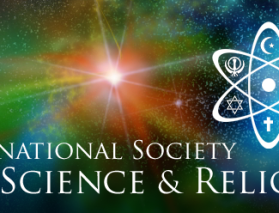I do. I blame it all on the liberal seminaries. Very early in my career, when I was a graduate student at Berkeley, I had contact with seminary professors as I was conducting studies. Since I was at Berkeley, a notoriously liberal institution, they were sure that I would be very sympathetic to their problem. So time and again I was told that their greatest challenge and their most important instructional duty was, and I'll quote, "to knock the Youth for Christ crud out of our seminary freshmen."
Well, they were pretty successful at it. They weren't successful at much of anything else, but they did manage to undercut the faith of a lot of their students.
This was going on even in the 1890s. Heck, by the 1820s, Harvard Divinity School was Unitarian. This is not just my own impression. Sidney Ahlstrom, a well-known, highly respected, and very liberal Protestant historian, has shown that Harvard was entirely Unitarian by around 1820.
So, the fact of the matter is, if you look at the leading lights in American Protestantism in the early 20th century, the famous people didn't believe in the divinity of Jesus. They were very shaky about the existence of God. They always talked about God, but when you got down into their books and pushed, God was some kind of social value. There wasn't a one of them who believed in a God who could hear prayers.
Well, they may be right about God. But that doesn't make for a strong church. As a matter of fact, it doesn't make for much of anything. If God doesn't hear or care, if God is not in fact an intelligent entity of some kind, if God is only an ideal, then church is an irrelevancy. Ideals are cheap. They also don't give you anything. Some of these guys bragged that atheists could embrace their conception of God. Well, that should have told you something! How ecumenical can you get?
So we've discussed what you pointed to first, the theological change that preceded or accompanied the decline in attendance. Let's turn to the second issue, the social issue. It sounds as though you're saying that, in the absence of a transcendent divinity, what became transcendent was this vision of social justice or something similar. The vision of the kingdom of God was replaced by a political vision that was the only thing really left worth getting passionate over.
If you look at the National Council of Churches, and the Federal Council before it, and look at their annual statements and resolutions, they are exceedingly Left-wing. Even in some really unexpected religious ways. For example, they're very much opposed to Christmas nativity scenes if conceivably they would be near or on public property. They're against school prayer.
I'm not saying they're wrong. I'm just saying that they are relentlessly Left, even on what might be considered traditional Christian positions. They are extremely, actively pro-abortion. They are constantly passing resolutions in favor of Cuba, and you couldn't possibly get them to condemn the Soviet Union for anything.
It becomes very boring at a certain point, but it's relentless and completely predictable. The only thing that saved them a little bit is how little publicity these resolutions have received in the last twenty or thirty years. That has protected them some. But I can remember back in the 1960s when it was clear that the members of many of the churches had never heard of the positions being taken by the denominational leaders. The denominational leaders would pass resolutions that "everybody in prison is a political prisoner," for example, or that "everybody commits crimes but only the poor are sent to prison for it." Well, I don't know about you, but I don't have many friends who engage in drive-by shootings and stick up liquor stores. I just don't. (Granted, they're a bunch of cowardly professors, but still.)
As you're surely aware, just as there was a progressive movement in the mainline denominations before, there is today a progressive evangelical movement. It has some fairly prominent organs like Jim Wallis' Sojourners magazine. Emergent evangelicals also emphasize the need for systemic and political transformations. Yet you've said that one of the causes for the decline of the mainline denominations has been the way in which liberal ministers turned churches into centers for progressive political activism. Do you foresee the same fate for evangelical progressives?
Sure. They're not going anywhere. If you don't hold church, why will people come?
I want to say one thing about the Leftist Christian movement in the 1930s. They were at least consistent. They hated charitable giving. They said it's ameliorative, an attempt to reduce the really sharp pangs of inequality and keep this corrupt system going. So they hated it. If there was good government, they thought, there would be no charitable giving. I suspect that there is still, underneath it all, a lot of that even in Wallis' movement.





